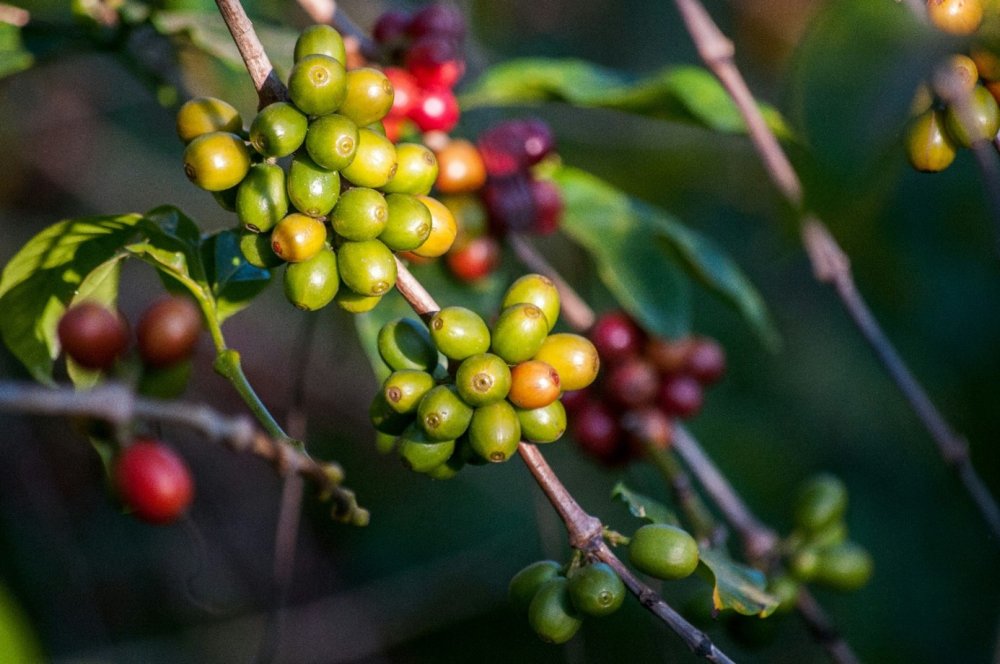Coffee is the world’s leading agricultural resource in terms of value. There are two cultivated species: Arabica coffee (60% of production) and Robusta coffee (40%). Coffee is grown as a fruit tree, producing yellow and then red cherries when ripe. After harvesting, the cherries are dried and hulled, to produce green coffee that needs to be roasted to develop its taste before being sold.

Image qui montre un caféier.
The global coffee market
World coffee production is dominated by Brazil, which will supply an average of 3 million tonnes of coffee per year over the 2012-2021 period, followed by Vietnam (1.5 million tonnes) and Colombia (43,000 tonnes). It should be noted that 70% of production comes from small family farms of less than 5 hectares.
The world coffee market counts 25 million producers and workers. The coffee industry is concentrated in the hands of a handful of players who meet the demand of the world’s 2 billion coffee consumers.
The challenges of the coffee industry in France
France imported an average of 228,000 tonnes of green coffee each year over the period 2012-2021. Brazil is the leading exporter of coffee to France in 2021: with 59,000 tonnes of coffee exported, the country accounts for 26% of imports. It is followed by Belgium, which exports 57,000 tonnes of green coffee to France, accounting for 25% of imports. In France, in 2022, the coffee industry will count 42 companies and 3,287 direct jobs.
The market has grown considerably in recent years, with an explosion in sales of pod and capsule formats, which are much more profitable for manufacturers. However, in 20 years, the share of value captured by producing countries (producers, intermediaries and traders) has fallen by a third.
The role of coffee in deforestation
With 11 million hectares cultivated in over 50 tropical countries, coffee is a crop with a high potential for deforestation. As the world’s biggest importer of coffee, the EU is responsible for 44% of coffee-related deforestation. It is estimated that 7% of deforestation imported by the EU is due to coffee, almost as much as cocoa.
Sustainable coffee
Around 55% of the world’s coffee production is covered by a standard that enhances coffee traceability. The four main existing certifications are organic, Fairtrade, Rainforest Alliance and Common Code for the Coffee Community (4C).
Certifications help to make the coffee chain fairer and more sustainable: at international level, global and European initiatives (Sustainable Coffee Challenge, Global Coffee Platform, ICO Coffee Public Private, Task Force the European Coffee Federation) aim to transform value chains to take greater account of environmental and social issues specific to the coffee sector.
2
billion
people drink coffee globally
228 000
tons
of green coffee are imported to France yearly
25
million
people work in the coffee industry in the world
Sources :
- FAOSTAT
- European commission
- French coffee syndicate
- CIRAD
- Amsterdam Declarations Partnership (ADP)
- Le BASIC

